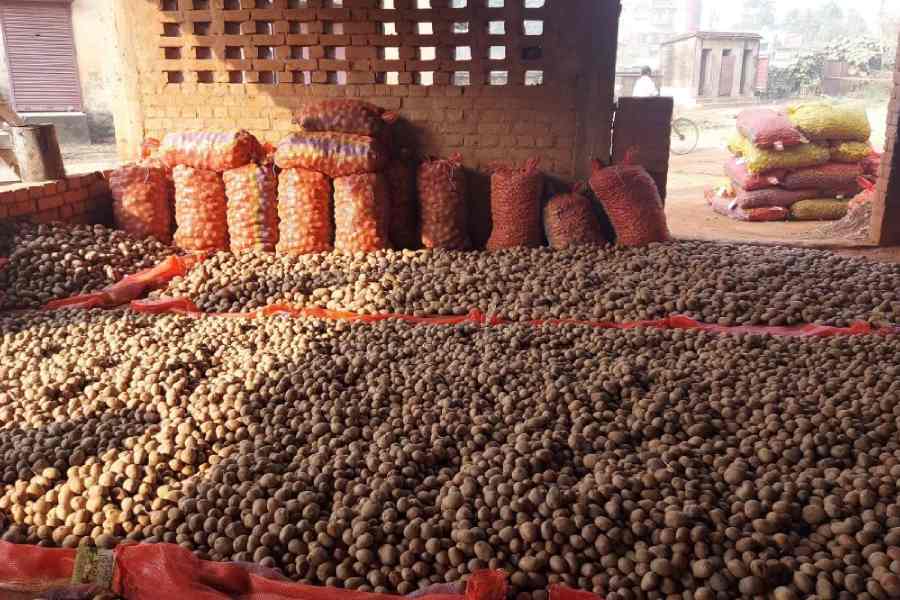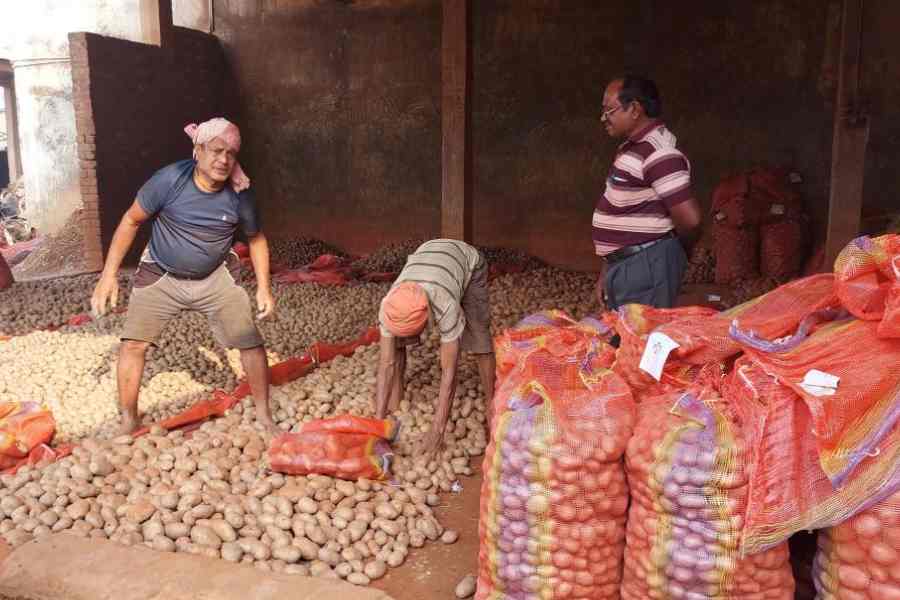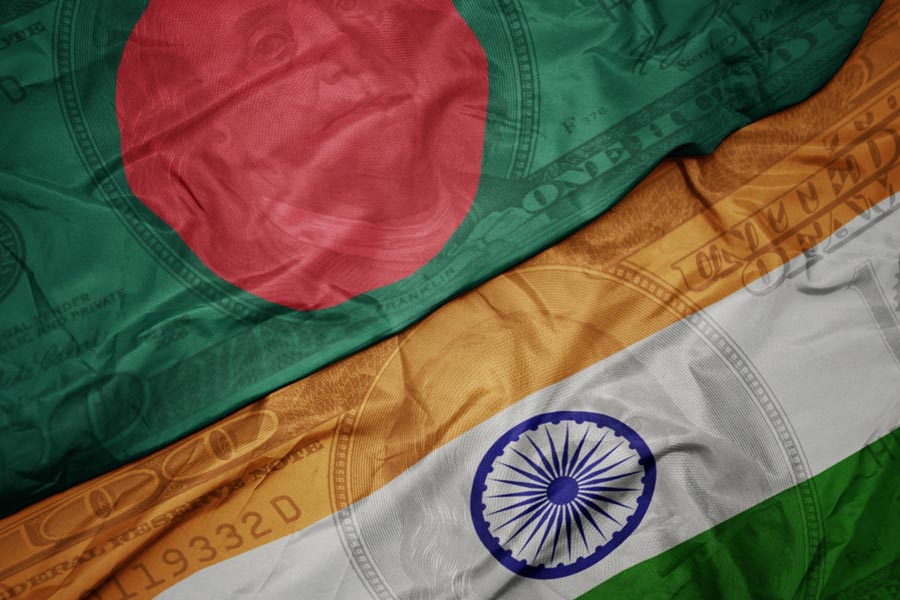Police in Bengal’s districts that border Jharkhand and Odisha are facing an unusual task: that of preventing the smuggling of potatoes, of all things.
And their biggest challenge is monitoring the hundreds of small rural roads and paths — many of them winding through the dense jungles that mark the local topography — that the smugglers can potentially take.
Sources said the surge in potato smuggling began after the Mamata Banerjee government banned the sale of the tuber outside Bengal from November 28, citing
limited stocks.
Earlier this month, the chief minister told the Assembly that potatoes would only be allowed to be sold to other states once Bengal’s own demand had been fulfilled.
“Police have increased surveillance on all possible link roads connecting Bengal with states like Jharkhand and Odisha to prevent potato smuggling,” state agricultural marketing minister Becharam Manna said.
“The government has been taking strict legal action against those involved in such malpractice.”
Manna has over the past 10 days travelled extensively across districts such as Jhargram and West Midnapore, overseeing the police surveillance of the Jharkhand and Odisha borders.

Potatoes being packed for the market in Hooghly’s Pursurah on Saturday. Picture by Ananda Adhikari
But senior police officers patrolling these districts’ interstate borders said their assignment was a tough one.
“The attempts to smuggle out potatoes are increasing, and the racketeers are taking different micro-passageways. It’s nearly impossible for the police to check all the rural link roads regularly through which smuggling can occur,” an officer said.
“This is unlike guarding international borders, where you can ask for passports and visas. There’s no border fencing, either. The many pathways through the forests can’t be monitored over the long run.”
The smuggling racket came to light after the police seized around 3,000 quintals of potatoes along with forged challans (receipts) at the interstate borders of Jhargram and Birbhum last week. Eleven people, mostly from West Midnapore, have been arrested.
An agricultural marketing department official said one of the gangs was operating from West Midnapore, with its reach extending to Birbhum and Jhargram. Local people in these districts were connected, too, and a gang from Hooghly was also involved, the official said.
The Jhargram police seized around 1,650 quintals of potatoes and arrested six people last week. About 800 quintals were seized from areas close to Odisha in Nayagram, and another 840 quintals from in and around Jambuni, close to Jharkhand.
Birbhum police on Friday seized 13 potato-laden trucks trying to cross into Jharkhand from the neighbourhood of Muraroi.
“We have started forgery and theft cases and are carrying out round-the-clock border surveillance,” Jhargram police chief Arijit Sinha said.
Jhargram shares a 127km border with Jharkhand and an 87km one with Odisha, while Birbhum shares a 300km border with Jharkhand.
Multiple sources said the Bengal government’s decision had raised potato prices in Jharkhand and Odisha. The Odisha government has accused Bengal of creating an artificial potato crisis in the neighbouring state’s markets.
A source said the ban had caused acrimony in some of the Odisha and Jharkhand districts bordering Bengal, with residents blocking the movement of labourers and other vegetables from Bengal in retaliation.
Several police officers suggested that the state government can stop the smuggling only by keeping a tab on the release of potatoes from cold stores.
“There should be a robust system to monitor vehicles once they load potatoes from cold stores,” an officer said.
Minister Manna said teams from his department were indeed monitoring the release of potatoes from cold stores and tracking where the consignments were going.
Potato traders claim the smuggling has begun because the government has enforced the ban for too long a period.
“The government should think of a solution other than continuing the ban, as we are facing significant losses,” Laloo Mukherjee, secretary of the Paschim Banga Pragatishil Aloo ByabasayeeSamiti, said.
“The smuggling will stop if the government allows the transport of potatoes up to a specific limit, and across designated interstate borders.”











